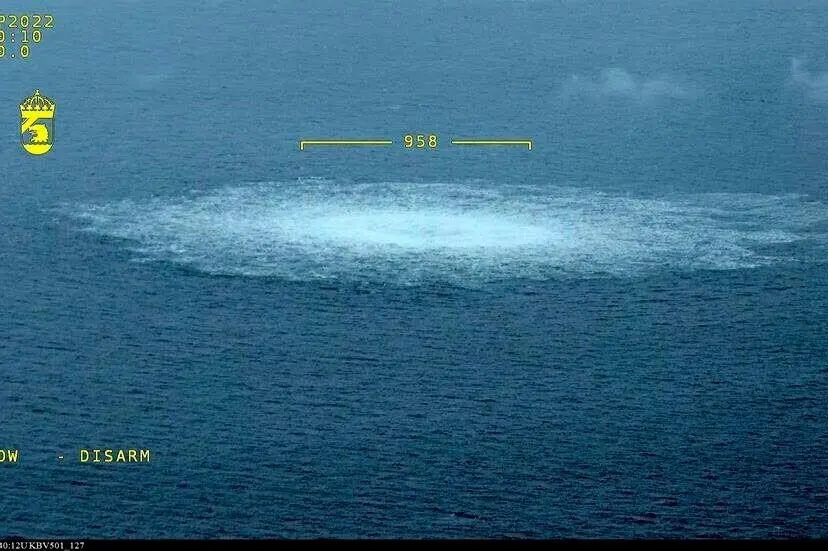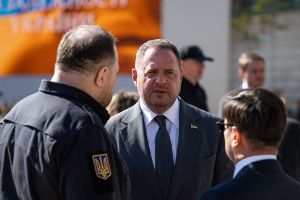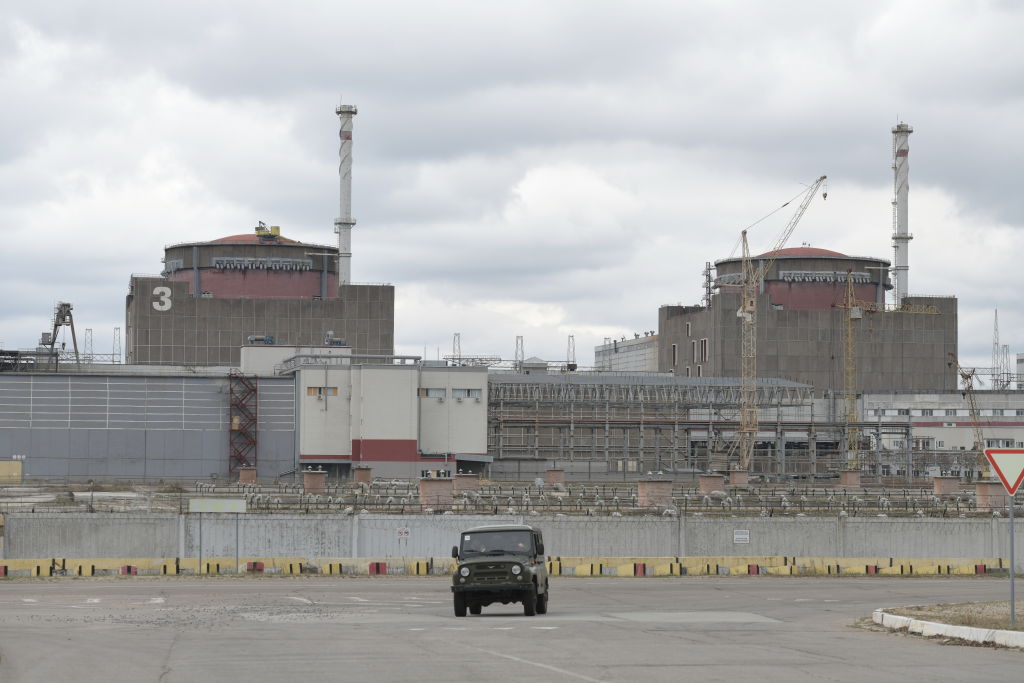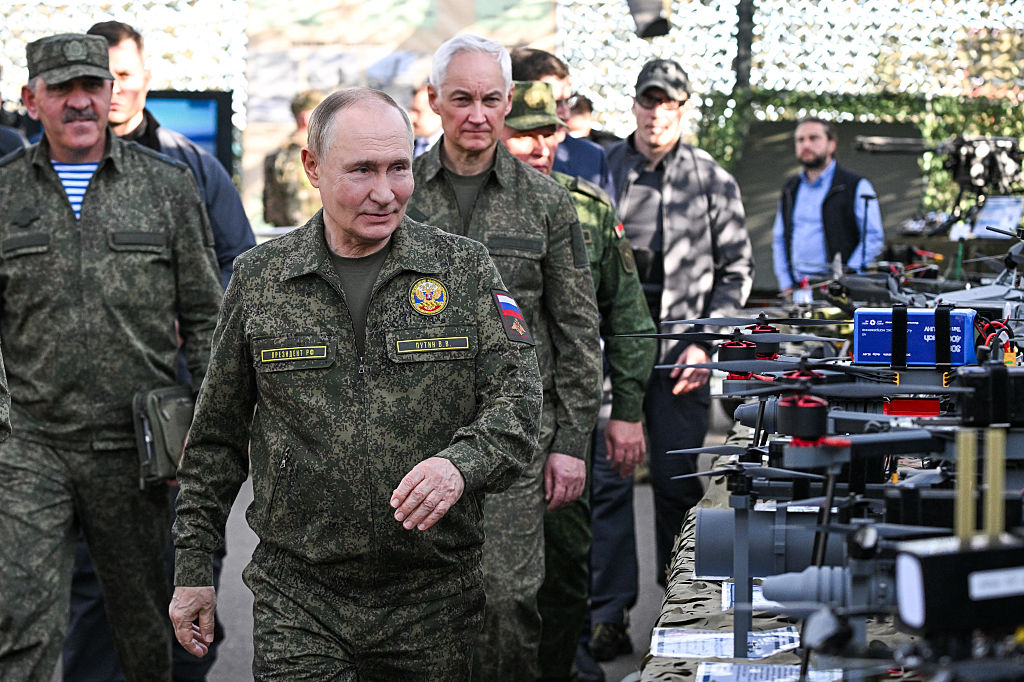The identity of the saboteurs who blew up the Nord Stream pipelines in September 2022 was for years the western security establishment’s worst-kept secret. Just two weeks after a series of explosions within the economic zones of Sweden and Denmark crippled three of the four undersea natural-gas pipelines linking Russia to Germany, Scandinavian diplomats in Brussels were already being quietly briefed that the most likely culprits were Ukrainian. By January 2023, a forensic investigation by German police had discovered traces of the explosives on board the charter yacht Andromeda and found that the vessel’s movements aligned exactly with the location of the blasts. Crucially, the Germans also established both the cover identities and the real identities of the seven Ukrainian members of the sabotage commando.
Ukraine’s hand in the sabotage operation was common knowledge among western security agencies
By the time The Spectator published a detailed report in March 2023 pointing the finger at Kyiv, Ukraine’s hand in the sabotage operation was common knowledge among western security agencies. As one senior British intelligence official told me in January 2023, “The story will come out sooner or later… but we’re not going to be the ones to leak it.”
Details of the German, Danish and Swedish investigations were kept secret not only from the public but also from EU and US politicians, and from the United Nations, for a simple reason: the news that Ukrainians were involved in an attack on Germany’s critical infrastructure could have a devastating impact on Kyiv’s relations with its major European supporters – as well as on public support for Ukraine. Or as Germany’s BND foreign intelligence agency put it in a response to a parliamentary question in October 2022: “Information regarding this question cannot be issued – even in classified form – due to considerations regarding the welfare of the state.”
Denmark and Sweden officially shut down their investigations in February 2024 without releasing any information to the public. But the official omertà was finally broken last summer by the office of Germany’s Federal Prosecutor General, which has shown itself to be more concerned with justice being done than with saving the blushes of politicians in Kyiv – and Berlin. At least two European Arrest Warrants were obtained in June 2024 for Ukrainian suspects. And in August of this year 49-year-old former military diver Serhii Kuznietsov was arrested while on holiday near Rimini and remanded in custody by Italian magistrates, while another military veteran Volodymyr Zhuravlyov was detained in Pruszków, Poland, on September 30. But judges in both Poland and Italy have refused to extradite the suspects to Germany – sparking a political battle over whether they should face justice at all.
“The problem with Nord Stream… is not that it was blown up, the problem is that it was built,” Polish Prime Minister Donald Tusk said recently, arguing against extraditing Volodymyr K to Berlin. The head of Poland’s National Security Bureau, Sławomir Cenckiewicz, told the Financial Times that “if Germany is prosecuting someone based in Poland who destroyed the source of income of the Russian war machine, then we see a clear contradiction in interests between Poland and Germany… From our point of view, this investigation doesn’t make sense, not only [for] Poland but also [for] the whole [NATO] alliance.”
In other words, while Berlin prosecutors see the Nord Stream operation as an attack on Germany, the Poles view it as an attack on Russia. And while the Ukrainian citizenship of the suspects is not in doubt, the exact role the Ukrainian government and military played – as well as who conceived of, planned and ordered the attack – remains a mystery. The Russians, for their part, continue to insist that the attack was organized on a “state level,” and Putin himself has dismissed as “sheer nonsense” any suggestion that the pipelines could have been destroyed by a handful of possibly freelance Ukrainian frogmen. Kremlin media regularly blame the US for the attacks.
The controversy over the extradition has become inextricably linked with Germany’s own political debates over the causes of Putin’s 2022 invasion of Ukraine – and the legacy of the policy of cooperation with the Kremlin by successive German chancellors Gerhard Schröder and Angela Merkel.
From the moment Russia’s state-controlled Gazprom corporation first proposed massive undersea Baltic gas pipelines that would bypass Belarus, Ukraine and Poland and link Germany directly to the Yamal gas fields of northern Siberia in 2006, Poles and other eastern Europeans consistently and adamantly opposed the project. They argued that an abundance of cheap gas would increase European dependence on Russia, while at the same time enriching the Kremlin. Schröder and Merkel countered that increasing Russia’s economic dependence on European money would encourage peace and cooperation.
Even when Putin’s 2014 annexation of Crimea fundamentally undermined this logic, Merkel nonetheless greenlit the €9.5 billion Nord Stream 2 project in 2015, despite strong opposition from Washington. In the event, the second set of pipelines were completed but never certified and never came online. One of the two Nord Stream 2 pipes survived the attacks intact and is still full of pressurized gas, ready in theory to be switched on at any moment.
In several important ways, history has proved the critics of Nord Stream right – not least about the danger that the Kremlin would use its control of more than a third of Germany’s energy supply as a political weapon. In June 2022 Gazprom reduced the pressure through Nord Stream 1 to 40 percent of its previous flow, claiming that recent European sanctions had prevented the delivery of Siemens-made turbine blades. The following month the company shut down supplies, citing annual maintenance work. Service was resumed ten days later, but at only 20 percent capacity, and on August 31, Gazprom closed Nord Stream 1 indefinitely, officially because of further technical issues. Indeed, it was precisely in order to stop the Kremlin from applying energy blackmail on Berlin that, reportedly, the Ukrainian plotters decided to put an end to Nord Stream – and Russian leverage over Europe – once and for all.
The critics were also right about the dangers of Germany and Europe’s economic dependency on cheap Russian gas. The Kremlin’s serial messing with supplies predictably sent gas markets into a panic, with spot prices for natural gas soaring to €70 per megawatt-hour in August 2022, up from €27 in January. In the aftermath of the destruction of Nord Stream in late September, Germany rapidly built floating harbors to offload supplies of expensive liquefied natural gas (LNG), and booked massive new shipments from the US, Canada, Qatar and – ironically – Russia (which as of last year was still Europe’s second largest LNG supplier, after America).
The problem for the German economy was that several major sectors – notably large, energy-intensive industries such as chemicals, refining and fertilizers – have faced much higher costs. An IMF report suggested that the negative impact on Germany’s GDP of the shutoff of cheap Russian piped gas would be 1.5 percent in the second half of 2022, 2.7 percent in 2023, and 0.4 percent in 2024. That same IMF study predicted that the destruction of Nord Stream and its associated gas price rise would add some 2 percentage points to German inflation in 2022 and 2023 because of higher energy costs rippling through food, manufacturing, transport and consumer goods. While it’s impossible to know exactly what German economic performance would have been without the Nord Stream hit, Germany’s economy contracted by -0.3 percent in 2023 and -0.2 percent in 2024 while inflation shot up to 7.9 percent in 2022 before falling to 2.4 percent by 2024.
In short, whoever carried out the Nord Stream operation cut off Russia’s most valuable tool of political blackmail and wrecked one of Gazprom and the Kremlin’s most lucrative income streams. But they also killed off German growth and pushed up inflation across the continent.
To some, Germany’s insistence on prosecuting the saboteurs smacks of hypocrisy. “Forgive me if I say that the sight of Germany now ‘investigating’ the sabotage of Nord Stream feels like a mockery of history – another manifestation of German arrogance and hubris,” says Sławomir Dębski of the College of Europe in Warsaw. “Perhaps they should start by investigating Schröder and Merkel – they were the ones who blew up Europe’s trust in Germany as a reliable ally.”
Berlin prosecutors see the Nord Stream operation as an attack on Germany – the Poles see it as an attack on Russia
Others are outraged that Ukraine should have carried out such a destructive attack on its own allies’ economies despite receiving tens of billions of dollars in international aid and, it is said, in defiance of strong opposition from Washington. In August 2024 the Wall Street Journal, citing senior but anonymous sources, reported that the operation was ultimately commanded by General Valerii Zaluzhnyi (then Ukraine’s top commander) – and had gone ahead despite President Zelensky allegedly trying to call it off after pressure by US intelligence.
From Ukraine’s point of view, the attack was a major success, qualifying as one of the most geopolitically effective covert operations in history. Ukraine’s main strategic weakness over the late summer of 2022 was that the promise of a resumption of cheap Russian gas would fatally weaken European resolve to back the war effort. But with Nord Stream physically gone, Europe’s return to its Gazprom addiction ceased to be a threat. For the Kyiv government to undertake such an attack would carry enormous political risks if the story ever came out. But specialist operatives acting independently would be legitimately deniable. Which has pretty much remained the case, until now.
With extradition blocked and the two arrested suspects now at liberty, there will be no trial and no chance that details of the operation will be produced in court. And the biggest secret of all – the full truth about who in Kyiv ordered the attack – will likely remain hidden for years to come.
This article was originally published in The Spectator’s October 27, 2025 World edition.


























Leave a Reply